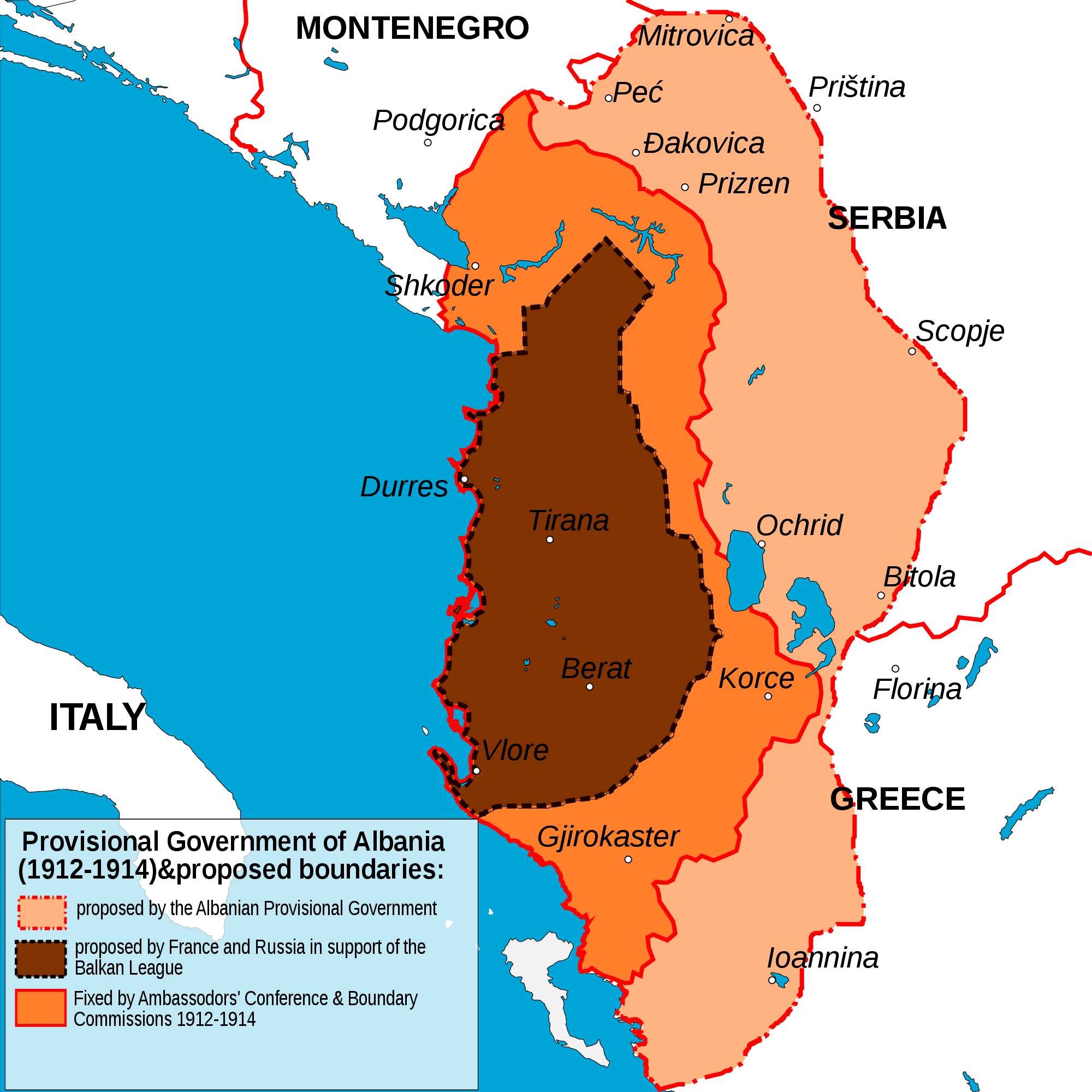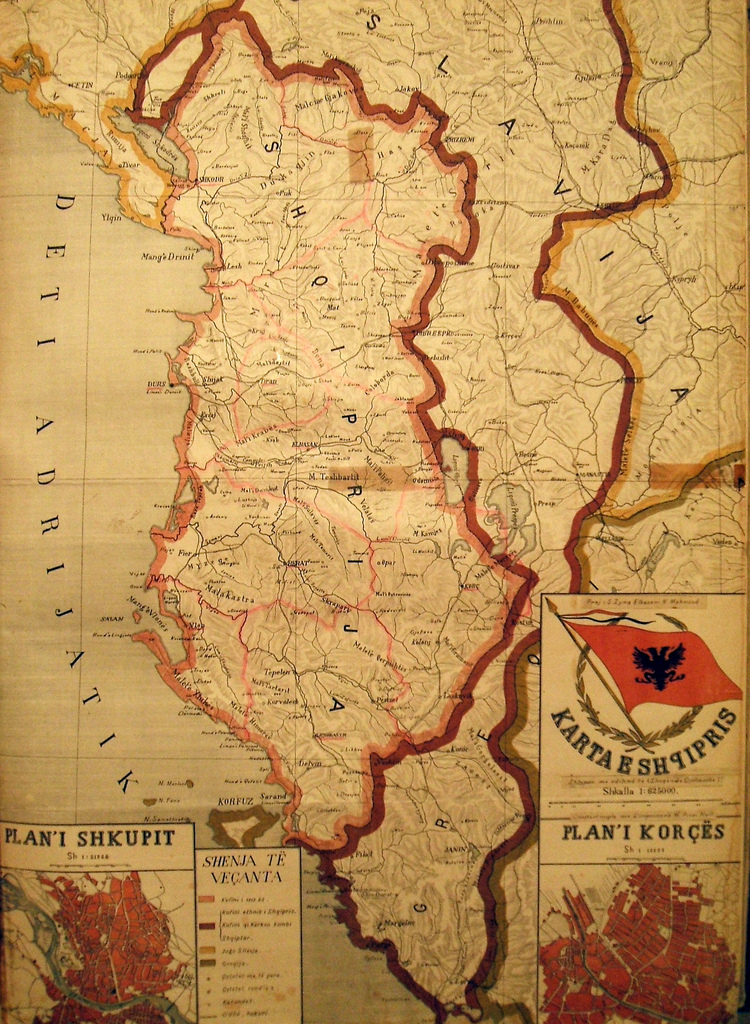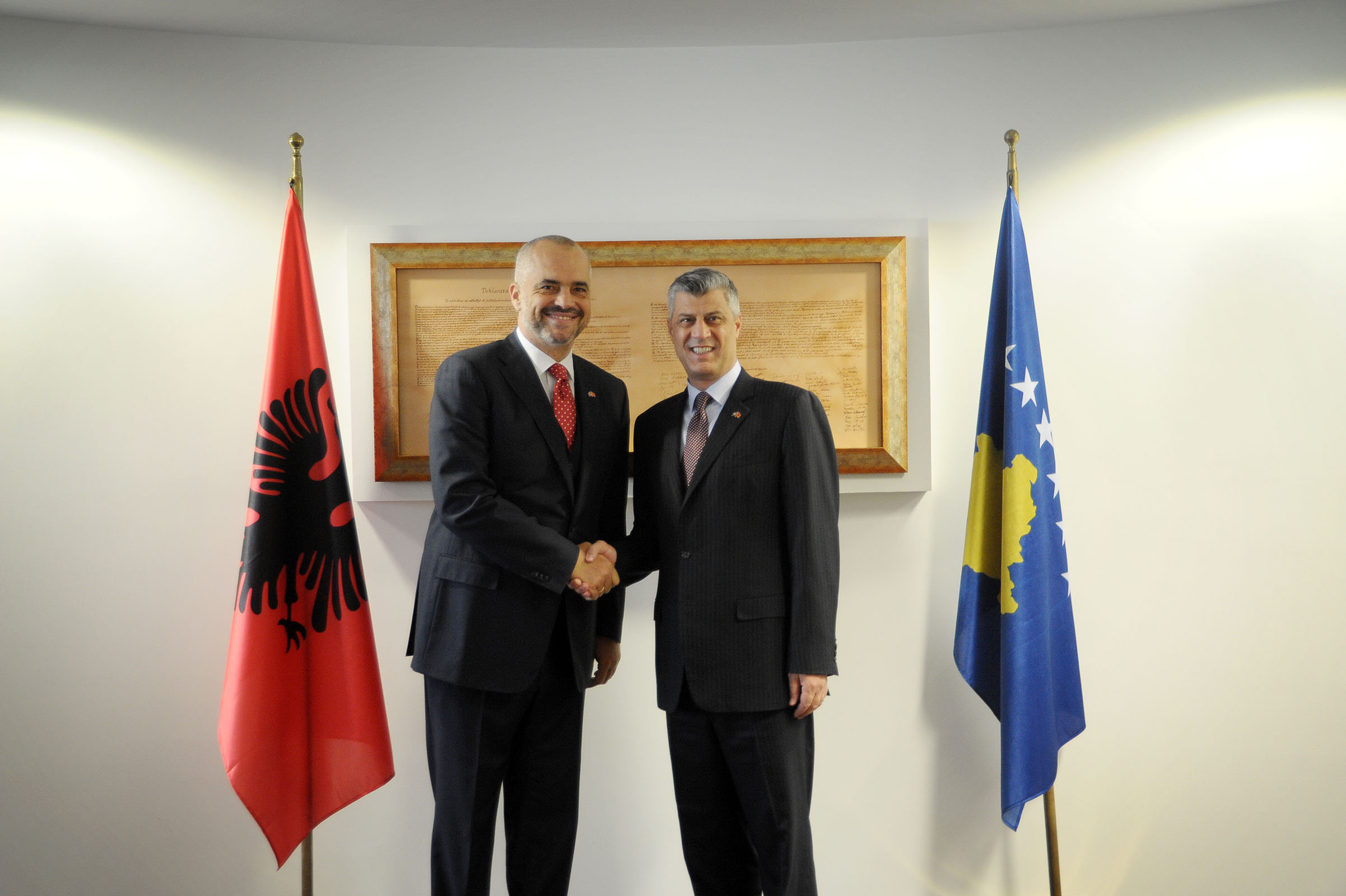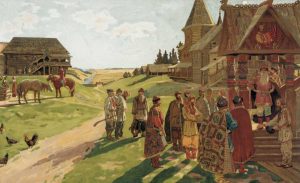
Views: 1792
The Great Powers installed a German army officer, a German Prince William, Wilhelm of Wied, Germany, as the first recognized ruler of an “independent” Albania, a puppet or proxy regime or government set up by the Great Powers.
In many ways, the conflict between the Great Powers and Serbia over Albania in 1912-1913 prefigured and foreshadowed and was the precursor of the open conflict over Kosovo beginning in 1998. Albania achieved independence only because Serbia and the other Balkan League powers were able to defeat Ottoman Turkey militarily. The Great Powers immediately established a protectorate in Albania and planned to use Albania as a Great Power proxy and surrogate in the region against Serbia, Montenegro, and Russia.
 Albania had never existed as a country. Albania was part of the Turkish Ottoman Empire until the First Balkan War in 1912. The Great Powers created the first Albanian state in reaction to the First Balkan War.
Albania had never existed as a country. Albania was part of the Turkish Ottoman Empire until the First Balkan War in 1912. The Great Powers created the first Albanian state in reaction to the First Balkan War.
The London Conference, which was convened in late 1912, sought to resolve the First Balkan War by establishing the borders between the warring countries.
Before the First Balkan War ended on December 2, 1912, however, Albanian leader Ismail Bey Kemal, or Ismail Bej Qemali in Shqip, an Albanian Muslim, declared independence for Albania on November 28, 1912 in Vlore and set up a provisional government which he headed. Serbia, Montenegro, and Greece had occupied Albanian territory.
This occupation presented a major crisis for the Great Powers because Albania was being sponsored by Austria-Hungary and Italy as a proxy and surrogate, who both feared Serbian encroachment and expansion on the Adriatic Sea. Serbia and Montenegro were allied with Russia. Both Austria-Hungary and Italy saw the specter of the old bogeyman of “a warm water port” for the Russian navy in the Adriatic Sea. This was something the Western European Great Powers had dreaded for centuries. Great Britain, in particular, sought to prevent a potential Russian warm water port in the Adriatic, which would threaten British hegemony and domination of the major sea lanes. Italy and Austria-Hungary now were at the forefront in opposing and precluding a warm water port for Russia. Now this prospect appeared imminent with the success of Serbia and Montenegro in the First Balkan War against Turkey. The alarm bells started ringing in Western Europe where panic, dismay and shock resulted.
During the First Balkan War, Serbia occupied the Albanian port city of Durres on the Adriatic on November 1, 1912. Montenegro put Shkoder under siege on April 23, 1913, a siege which lasted until May 6, 1913. The Great Powers forced Montenegro to lift the siege of Shkoder. Germany, Austria-Hungary, and Italy gave Serbia an ultimatum to withdraw from Durres and northern Albania. Subsequently, an international administration was set up for Shkoder by the Great Powers.
The issue of Albania was a microcosm of the territorial rivalries that would lead to the Great War, World War I. The conflict was essentially between Austria-Hungary and Serbia, who had interlocking alliances with the other Great Powers. Austria-Hungary was a major sponsor of Albania, which was a bulwark and a proxy against Serbia. Austria-Hungary, moreover, had a naval fleet based along the Adriatic coast.
The November 28, 1912 declaration of independence by Albania was recognized on July 29, 1913 by the Great Powers who installed a German army officer to rule the country as a proxy and surrogate of the Great Powers, Prince William of Wied, Wilhelm Friedrich Heinrich of Wied (1876-1945), Germany, known as Wilhelm I zu Wied, Prince of Albania, Mbret i Shqiperia. His Private Secretary was Captain Duncan Heaton-Armstrong of the British Army, who had been commissioned in the Lancashire Fusiliers, a British infantry regiment. Financed by Italy and France, Wilhelm was the first officially and internationally recognized political leader of Albania from March 7 to September 3, 1914. Wilhelm had been a Prussian cavalry officer and was a captain in the German general staff. When World War I started, Austria-Hungary requested that Wilhelm send Albanian troops to fight in the Austro-Hungarian armed forces. The New York Times for May 12, 1913 even suggested that former U.S. President Theodore Roosevelt was being considered as a candidate to rule Albania, as the King of Albania, in the news dispatch “No Throne for Roosevelt”.
The recognition of Albania by the Great Powers was meant to prevent any Serbian territorial moves and to preclude any territorial claims against Albania and to preserve Great Power strategic control over Albania, which was to ensure a Great Powers strategic and military presence or foothold on the Balkan Peninsula.
The first meeting of the London Peace Conference, following the end of the First Balkan war, was on December 16, 1912. The Treaty of London followed in 1913.
The armistice that ended the First Balkan War was signed on December 3, 1912. The London Peace Conference was made up of delegates from the Balkan allies, the Balkan League, which included Greece, which had not signed the armistice, and Ottoman Turkey. The first meeting was held on December 16, 1912. Concurrently, a Conference of Ambassadors, made up of Sir Edward Grey of Great Britain, and the London representatives of all the Great Powers, was in session. The victorious Balkan League allied countries demanded that Ottoman Turkey must provide a war indemnity, Ottoman Turkey must cede all territory in Europe, known as Turkey in Europe, to the Balkan states, and, that Albania was to be excluded in the territorial settlement between Turkey and the Balkan states.
Albania and a Greater Albania
On March 22, 1913, one of the proposals made by the Great Powers as a basis for the resumption of peace negotiations was that the status and frontiers or borders of Albania were to be determined by the Great Powers themselves.
The Great Powers exacerbated the tension among the Balkan allies by taking Albania as a protectorate or proxy. The decision of the Conference of Ambassadors with regard to Albania deprived Serbia of any territorial claims to Albania. This resulted in Serbia seeking a modification of the Serbian-Bulgarian Treaty of March 13, 1912. The exclusion of Serbian territorial demands in Albania by the Great Powers forced Serbia to seek territorial gains at the expense of Bulgaria in Macedonia and resulted in the Second Balkan War.
On May 30, 1913, it was established by the Treaty of London that the borders and status of Albania were to be fixed by the Great Powers.
The subsequent August, 1913 Treaty of Bucharest reaffirmed Albania as an independent state and recognized the borders previously established at the London Conferences by the Great Powers.
On November 9, 1921, Yugoslavian troops crossed the Albanian border and occupied Albanian territory in support of the Mirdite Republic, a breakaway Roman Catholic Albanian region established by Gjon Markagjoni. The secessionist Mirdite Republic was proclaimed on July 17, 1921. The League of Nations commission, made up of Britain, France, Italy, and Japan, forced the Yugoslav withdrawal and reaffirmed Albania’s 1913 borders. A subsequent Conference of Ambassadors settled the Albanian international borders based on the 1913 demarcation line. There were small territorial increases or concessions for Yugoslavia, then known as the Kingdom of Serbs, Croats, and Slovenes, was referred to as “Jugoslavia” or “Jugo-slavia”. This decision established Albania’s international borders. Albanian guerrillas, what would be termed terrorists or ultranationalists, kachaks, continued a terrorist war against Yugoslavia, however, in order to annex Kosovo-Metohija to Albania.
Originally published on 2007-12-30
Author: Carl K. Savich
Source: Serbianna
Origins of images: Facebook, Twitter, Wikimedia, Wikipedia, Flickr, Google, Imageinjection & Pinterest.
Read our Disclaimer/Legal Statement!
Donate to Support Us
We would like to ask you to consider a small donation to help our team keep working. We accept no advertising and rely only on you, our readers, to keep us digging the truth on history, global politics and international relations.
FOLLOW US ON OUR SOCIAL PLATFORMS










